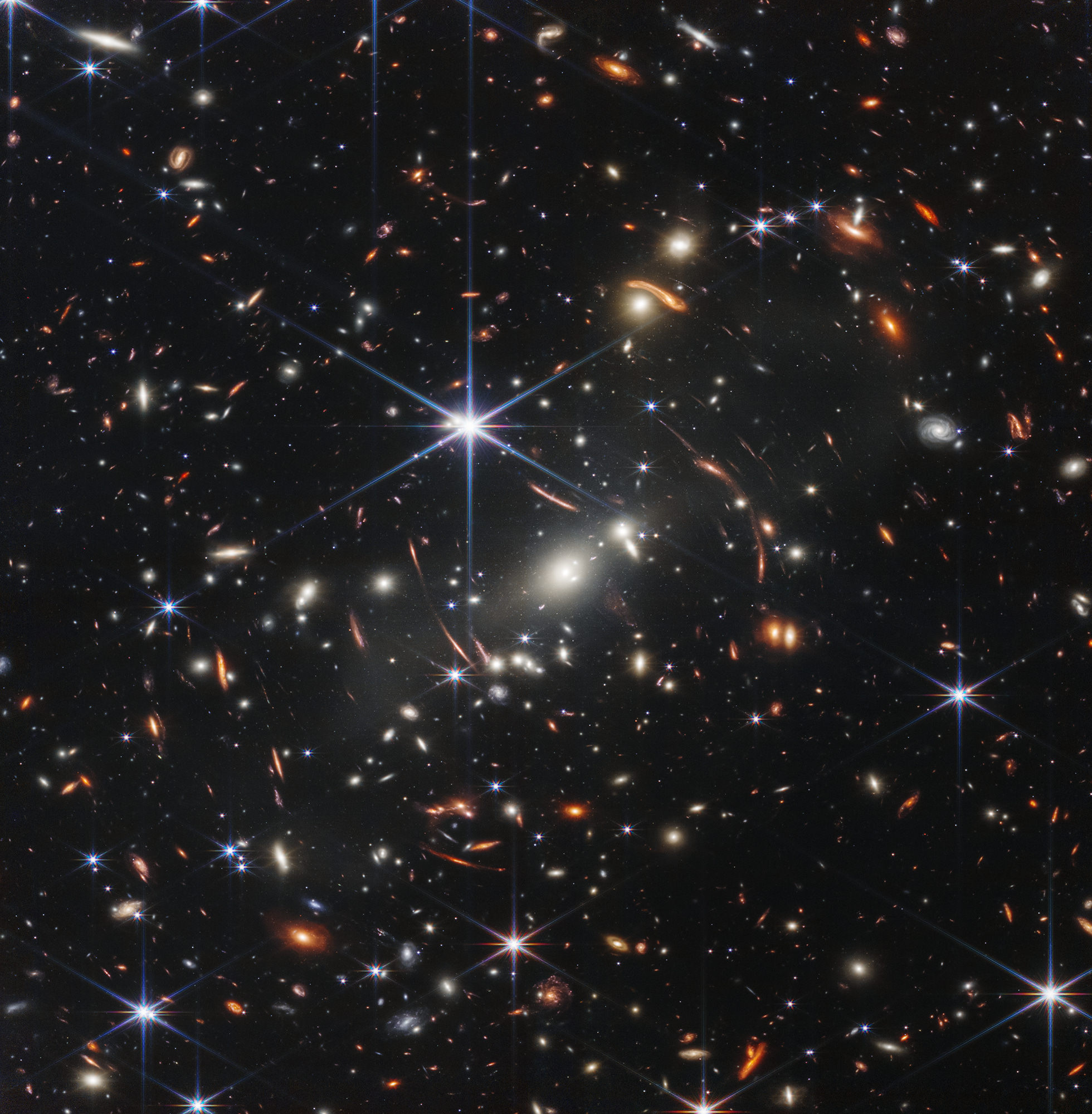The JWST and Human Progress
The James Webb Space Telescope pictures break my brain the longer I look at them.

The James Webb Space Telescope pictures break my brain the longer I look at them.
You’re telling me we took two giant mirrors, pointed them at each other, then pointed them at the sky… and the pictures of it that it took were what was happening 13 billion years ago? We were banging together rocks to create sparks not 500,000 years ago and now we are building telescopes that can see 13.7 billion years into the past. What?
It’s such a mind-bend, too, when you think about relativity. The objective physical state of those stars and galaxies at this moment in time is probably much different than what we are observing in the JWST pictures. Yet, there’s no way to measure or know that from here. We are limited by our position in the universe unless -- or until -- we can either hop planets or get closer to the galaxy cluster (or whatever other cosmological phenomena we wish to examine) itself. Which, as I will discuss later, I think is a very unlikely possibility.
Another thought arresting my brain since the JWST drop has been how science itself seems to scream out the existence of God. There’s a number -- about 1/137, the fine-structure constant -- that somehow unifies the fundamental concepts of physics: the speed of light, Planck’s constant, and a bunch of other shit I don’t understand. It’s a pure number. It’s not a measurement; you put the measurements in and the universe spits 1/137 back out at you. We know it’s constant across the entire universe, and if it were even slightly different, carbon-based life would fail to form…
There is a lot more to be said about intelligent design and a finely-tuned universe but I will elaborate on it at some other point.
In Jon Bois’ 17776, a young immortal humankind is forced to grapple with the reality that human progress is finite. Try as you may to hurl things up into space as fast and as far as possible; there comes a point at which progress plateaus. There is only so much metal and rocket fuel available on Earth. Despite our very real mortality compared to the humans of 17776, I believe we face a similar dilemma. Now armed with the powerful JWST, we stand on the precipice of a brand-new understanding of the cosmos, but we will never gain a full understanding of its mysteries. We will continue to progress until we, similarly, reach some hill we realize we cannot, will not ever, scale.
I’ve come to understand two things from this conclusion.
One: is that this scares the ever-loving shit out of atheists. When I was an atheist, what I detested most about religion was its requirement that you accept unknowns -- that you admit you don’t have all the answers. I called it blind faith. What many atheists fail to realize is that science is as much of a belief system as any religion is. Science and religion both look at our world and the universe as a whole and come to very different (but not mutually exclusive) conclusions about them. There is just as much unknowable knowledge about the nature of our universe as there is about the nature of God. I think many atheists, myself included at one point, cling to what little is known (and even then our “knowing” is simply based in theory) rather than face the unknowns inherent to God. The prospect of finite human progress is terrifying to atheists because it means they, too, will never achieve a full understanding of the nature of existence -- something we religious folk have long accepted.
Anyway, two: there is no Planet B. Any planets with the remote possibility of supporting carbon-based life are too far away to reach before our own planet becomes inhospitable, a reality that is quickly approaching. There is no escape. We can only fly so far into the cosmos.
It would seem, then, that the universe is simultaneously incredibly anthropocentric yet not at all. It’s like I said before: universal constants that stay virtually the same across the infinite (do you know how big that is?) landscape of spacetime seem perfectly tailored to support life as we know it. Life as complex, loving, feeling beings. And yet we are so infinitesimally small and unimportant, fruitlessly launching ourselves into a universe that cares very little about whether or not we will ever comprehend its entirety. What a paradox.
The goal of cosmological exploration should not be to find an escape pod. It is a reflection of the unknowability of God and existence itself. Baruch Hashem! For He created the cosmos such that we may understand more about ourselves through them. Cosmology is an act of worship.

